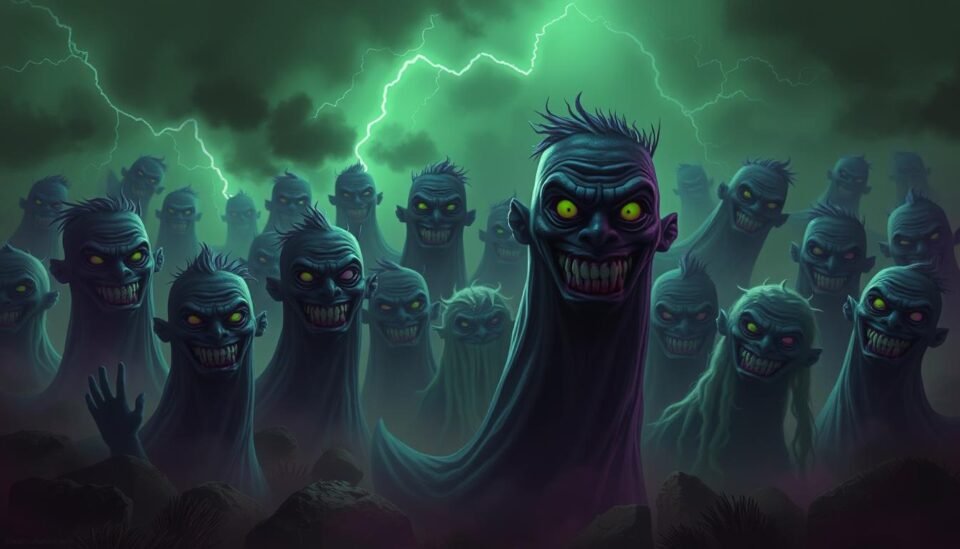Ireland faces a rising tide of online harassment and abuse. Twitter has become a hotspot for trolls targeting individuals and organizations.
These attacks have serious consequences for mental health and free speech. They also damage Ireland’s digital communities and public discourse.
Key Takeaways
- Ireland is experiencing a surge in Twitter trolling and online harassment.
- Twitter has become a hub for abusive behavior, with individuals and organizations facing relentless attacks.
- The problem has significant consequences for mental health, public discourse, and the overall well-being of Irish communities.
- Understanding the nature of Twitter trolls and the motivations behind their actions is crucial to addressing this growing issue.
- Effective solutions will require a multi-pronged approach involving policy changes, community engagement, and education.
Understanding Twitter Trolls in Ireland
Online, “Twitter trolls” cause trouble on social media. They target Ireland, making online harassment a big problem.
Defining a Twitter Troll
Twitter trolls post mean messages to upset others. They hide behind fake names online.
Types of Twitter Trolls
“Attention Seekers” love reactions from others. “Ideological Crusaders” push their own ideas.
“Cyberbullies” pick on specific people. Each type acts differently online.
Why They Target Ireland
Ireland is a big target for trolls. Many Irish people use Twitter a lot.
Ireland’s mix of cultures gives trolls topics to argue about. They use these to cause fights.
| Troll Type | Motivation | Tactics |
|---|---|---|
| Attention Seeker | Craving attention and validation | Posting provocative, controversial content |
| Ideological Crusader | Pushing a specific political or social agenda | Engaging in heated debates, spreading misinformation |
| Cyberbully | Targeting and harassing specific individuals | Sending abusive messages, launching coordinated harassment campaigns |
“The anonymity of the internet empowers some people to say things they would never say in person. Understanding the motivations and tactics of Twitter trolls is key to addressing the growing problem of online harassment in Ireland.”
Learning about trolls helps us fight online bullying. We can make the internet safer for everyone.
The Rising Prevalence of Trolls
Online harassment and abuse are growing problems in Ireland. Twitter trolls are a big part of this issue.
Many studies show how bad this problem is. We need to act fast to stop it.
Statistics on Online Harassment
A new survey found that 60% of Irish social media users face online harassment. Women and minority groups are the most affected.
One in four people have been attacked by Twitter trolls. These attacks include mean words and threats.
Case Studies from Ireland
Twitter trolls in Ireland have caused big problems. Some cases show how bad social media abuse can be.
An Irish politician faced a lot of harassment online. Trolls spread lies about them, hurting their mental health.
A young Irish content creator also dealt with online abuse. They had to stop using social media because of it.
Online harassment is a big problem in Ireland. These cases show how Twitter trolls hurt people.
We need to find ways to stop this growing issue. It’s important to protect people online.
The Impact on Individuals and Communities
Twitter trolls in Ireland hurt people and groups. Online abuse can cause anxiety, depression, and post-traumatic stress disorder. [https://pmc.ncbi.nlm.nih.gov/articles/PMC10328201/]
Victims may withdraw from society and become less productive. This can harm their overall well-being.
Mental Health Consequences
The mental health impact of Twitter trolling is worrying in Ireland. Victims of online abuse can face many mental health problems.
- Increased feelings of anxiety and stress
- Symptoms of depression, such as low mood and loss of interest
- Post-traumatic stress disorder (PTSD) from the trauma of the abuse
- Decreased self-esteem and confidence
Effects on Public Discourse
The consequences of online abuse go beyond the person. It also affects public talks in Ireland.
Twitter trolls often attack people who share views on sensitive topics. This creates fear and limits free speech.
People may avoid sharing their thoughts on important issues. This hurts public discourse and reduces the variety of views shared.
| Impact of Twitter Trolling | Consequences |
|---|---|
| Mental Health | Increased anxiety, depression, and PTSD |
| Public Discourse | Chilling effect, decreased participation in important conversations |
Twitter trolls in Ireland have a big impact. We need solutions to fix this problem.

“Online abuse can be very hurtful. Victims feel alone and scared to share their thoughts. We need to make the internet safer for everyone.”
Government and Policy Responses
Ireland is taking action against Twitter trolls. The government is working to make the internet safer for everyone.
Existing Regulations in Ireland
Ireland has laws to deal with online behavior. The Harassment, Harmful Communications and Related Offences Act 2020 fights cyberbullying and online harassment.
The Defamation Act 2009 helps address false statements made online. These laws aim to protect people from harm.
Proposed Changes to Combat Trolls
The government wants to do more to stop trolls. They’ve proposed the Online Safety and Media Regulation Bill.
This bill would create rules for social media companies. It would help fight harmful content and trolls.
The government is also thinking about a “digital safety commissioner”. This person would enforce online safety rules.
| Existing Regulations | Proposed Changes |
|---|---|
|
|
Ireland is serious about making the internet safer. Everyone needs to work together to stop online harassment.
How to Identify and Deal with Trolls
Social media can be tricky, especially with online trolls. Twitter trolls are growing in Ireland. Let’s learn how to spot and handle these troublemakers.
Recognizing Troll Behavior
Trolls often use mean words and attack people. They try to ruin good talks.
They may keep bugging the same people or topics. Spotting a troll can be hard, but these signs help.
Steps to Take When Targeted
- Don’t engage: Ignore the troll’s comments. Talking back often makes things worse.
- Block and mute: Use these tools to remove trolls from your feed.
- Report the behavior: Tell Twitter if the troll keeps bothering you.
- Seek support: Talk to friends or experts if you feel upset.
- Maintain online safety: Be careful about what you share online.
Taking action against trolls helps make the internet safer. Your well-being should always come first.
| Troll Behavior | Recommended Action |
|---|---|
| Inflammatory or provocative language | Block and mute the troll |
| Personal attacks | Report the behavior to Twitter’s moderation team |
| Obsessive or repetitive targeting | Seek support from trusted friends and professionals |
“The internet is a vast, uncharted territory, and it’s our responsibility to navigate it with care and consideration for one another.”
Promoting a Healthier Online Environment
We need to build a better online culture in Ireland. By encouraging positive online engagement, we can create responsible digital citizens.
This will help make social media healthier for everyone.
Encouraging Positive Engagement
We should teach people about digital citizenship. This means showing how to be thoughtful online.
Learning online manners and empathy can lead to better interactions. Understanding our digital footprint is also important.
Resources for Support and Education
Irish groups offer social media education programs. These teach how to handle online bullying.
They also help build strength and kindness online. Using these tools can make us more confident digital citizens.
